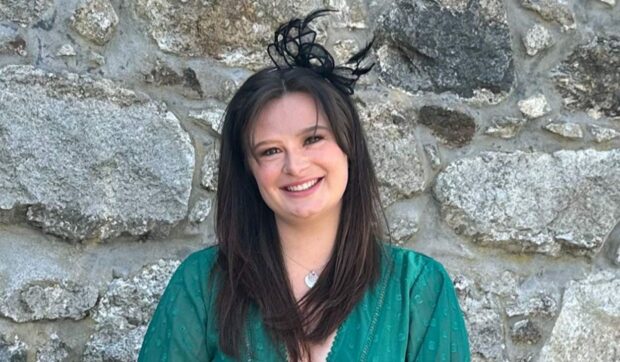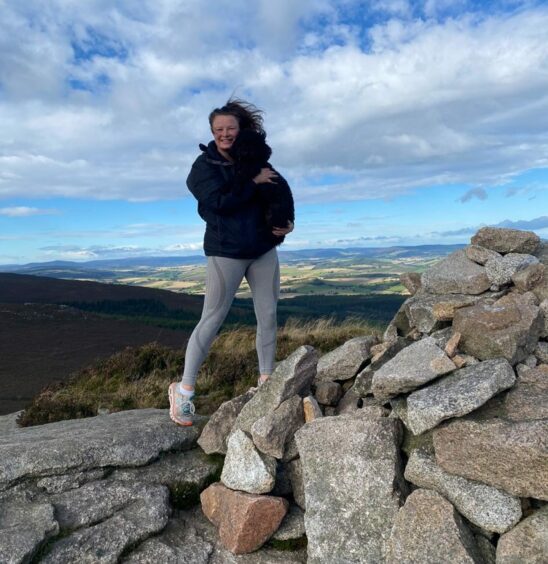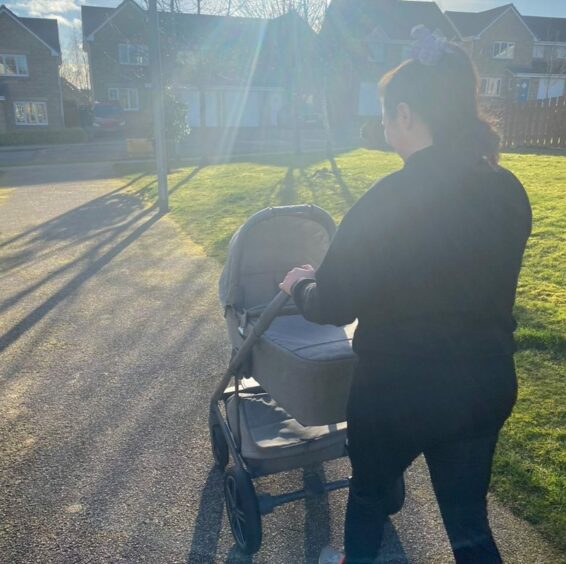An Aberdeenshire woman born without a womb is calling on the Scottish Government to reconsider what is funded under the NHS.
Taelor Shand paid £7,000 to have her eggs retrieved and frozen, after twice being denied funding from the NHS for the procedure.
The 27-year-old has Mayer-Rokitansky-Küster-Hauser Syndrome (MRKH), which means, in her case, she was born without a womb and just a single kidney.
While many people find out they have MRKH when their period doesn’t start by the age of 16, Ms Shand found out when she was being treated for a series of unexplained urinary tract infections when she was 14.
It is believed about one in 5,000 women are living with MRKH, which affects the female reproductive system. MRKH is not included in NHS Scotland’s criteria for fertility preservation.
Aberdeenshire woman was born without a womb
After a scan showed that she had no womb, Ms Shand said: “For me, it was a relief when I found out as I knew that there was something that was not right.”
But it was not until she was 25 and during than unrelated hospital stay that a consultant approached Ms Shand to recommend that she had her eggs frozen for a future IVF transfer.
The consultant applied for an exemption to have the treatment paid for under the NHS, but she was told the treatment would not be funded.
“I was not entitled to the funding, one of the reasons given was that I was not in a relationship,” she said.
Some women do qualify for fertility preservation through the NHS if they are about to receive treatment for cancer, or are preparing to medically change their gender.
“I wondered if I could have picked up anyone off the street to say I was in a relationship – but I was told ‘no’, and that I would need to provide evidence that we were together for two years.
“The thing is that the two years are to conceive naturally, and I can not conceive naturally as I do not have a womb. I was disheartened by it all.”
It wasn’t until last year when her nephew was born she realised that having her own children was very important to her.
In the future, her frozen eggs could be transferred into the womb of a surrogate.
Lack of knowledge in NHS has led to inequalities
She said: “I paid to have my eggs removed and frozen. Even at that stage, the consultant asked again for an exemption, and it was turned down – as I did not fit the criteria for NHS funding.
“Because of changes in the law, we hoped that I would have the procedure funded.”
During her procedure, 19 eggs were removed and 17 were considered mature. They were subsequently frozen.
“I felt like we were jumping through hoops to get the funding, and still I was turned down,” she said.
“Because I have been through the procedure I may have shot myself in the foot if the law does change, as I may not be entitled to funding as I have already had the eggs removed and frozen.
“But I would like to have a second batch of eggs, as we all know from biology lessons that egg fertilisation is a random process that happens by chance.
“I don’t plan to have a child until I am in my mid-30s.”
She believes a lack of knowledge of MRKH in the health service has led to inequalities.
“I always knew it would be a fight to change the law, but I am here to put pressure on the government.
‘I can not conceive naturally’
“I do not have a womb and the law does not apply to me, I can not conceive naturally.
“I’ve lost confidence in the NHS’s ability to make fair and consistent decisions about funding.
“While they’re reviewing the guidance and they’re looking at publishing it they should speak to people who are living with a condition.
“The current guidelines are full of inequality and discrimination”.
A spokesman for the Scottish Government said: “A Scottish Government group is working on guidance to standardise access to fertility preservation.
“The guidance is in its final stages of development and is expected to publish in early 2024.”




Conversation